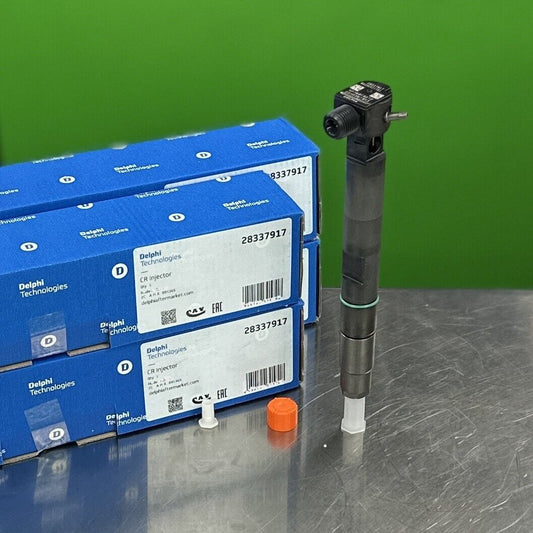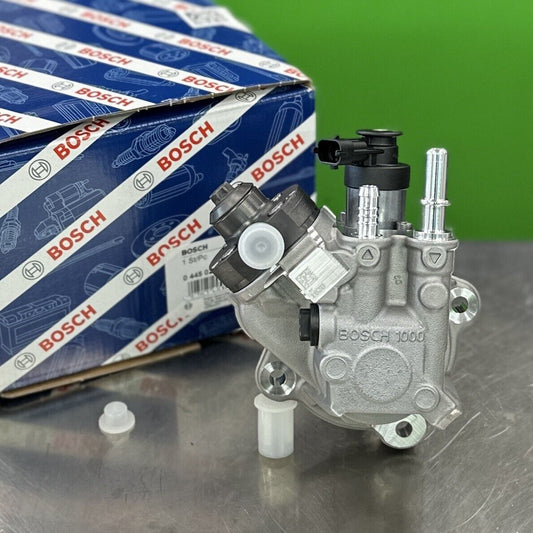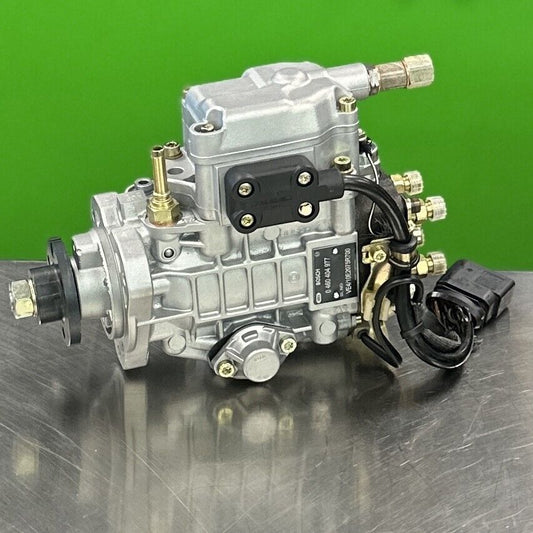Fuel Injector Myths Debunked
Fuel injectors play a crucial role in the performance and efficiency of a vehicle's engine. However, there are several misconceptions surrounding fuel injectors that can lead to confusion among car owners. In this article, we will debunk some common myths about fuel injectors and provide accurate information to help you understand the truth behind these misconceptions.
One of the most prevalent myths about fuel injectors is that they never need maintenance. Contrary to this belief, regular maintenance is essential to ensure that fuel injectors function optimally and have a long lifespan. Over time, fuel injectors can become clogged or develop issues that impact their performance. By neglecting maintenance, you risk compromising the efficiency of your vehicle and may face costly repairs down the line.
Another myth that circulates among car owners is that fuel injectors can be effectively cleaned using do-it-yourself (DIY) methods. While there are various DIY cleaning products available on the market, these methods often come with risks. Improper cleaning techniques can damage the delicate components of fuel injectors, leading to more significant issues. Professional fuel injector cleaning services are recommended to ensure thorough and safe maintenance of your vehicle's fuel system.
It is commonly believed that upgrading fuel injectors will always result in improved performance. However, the impact of upgrading fuel injectors on a vehicle's performance depends on various factors, including the engine's design and tuning. Simply swapping out fuel injectors without considering other components may not necessarily lead to the desired performance gains. It is essential to assess the compatibility of upgraded fuel injectors with your vehicle's existing system to achieve optimal results.
Lastly, fuel injectors are often scapegoated as the primary culprit for engine issues. While malfunctioning fuel injectors can indeed cause problems, they are not always the root cause of engine issues. Diagnosing engine problems accurately requires a comprehensive assessment of various components, including spark plugs, air filters, and sensors. By pinpointing the exact source of the issue, you can effectively address engine problems and prevent unnecessary repairs or replacements.
Myth 1: Fuel Injectors Never Need Maintenance
When it comes to fuel injectors, there is a common myth that they never need maintenance. However, this misconception can lead to serious issues with your vehicle's performance and efficiency. Fuel injectors play a crucial role in delivering the right amount of fuel to the engine for combustion, and like any other component in your vehicle, they require regular maintenance to function properly.
Ignoring the maintenance needs of fuel injectors can result in clogs, leaks, or inefficient fuel delivery, which can lead to decreased fuel efficiency and engine performance. To ensure that your fuel injectors are functioning optimally, it is essential to include them in your regular maintenance routine.
Regular maintenance for fuel injectors may involve cleaning, inspection, and testing to identify any potential issues early on. This proactive approach can help prevent costly repairs down the line and extend the lifespan of your fuel injectors.
One common mistake vehicle owners make is assuming that fuel injectors can last the lifetime of the vehicle without any maintenance. However, factors such as fuel quality, driving conditions, and vehicle age can all impact the performance of fuel injectors over time.
By debunking the myth that fuel injectors never need maintenance, you can take proactive steps to ensure that your vehicle continues to run smoothly and efficiently. Remember, a little maintenance now can save you from bigger headaches later on.
Myth 2: Fuel Injectors Can Be Cleaned with DIY Methods
When it comes to maintaining your vehicle's fuel injectors, there is a common myth that DIY methods are sufficient for cleaning them. However, it is essential to understand the potential risks associated with attempting to clean fuel injectors on your own.
Firstly, fuel injectors are precision components that require specialized equipment and expertise to clean effectively. DIY methods, such as using fuel additives or cleaning solutions, may not fully address the buildup of deposits and contaminants within the injectors.
Moreover, improper cleaning techniques can lead to further damage to the fuel injectors or other engine components. This can result in decreased performance, fuel efficiency, and even costly repairs in the long run.
Professional fuel injector cleaning services utilize advanced equipment and techniques to ensure thorough cleaning without causing harm to the injectors. These services can effectively remove stubborn deposits and restore the injectors to optimal working condition.
Furthermore, professional cleaning services often include a comprehensive inspection of the fuel injectors to identify any underlying issues that may be affecting their performance. This level of diagnostics is crucial for addressing potential problems before they escalate into more significant issues.
In conclusion, while the idea of cleaning fuel injectors with DIY methods may seem appealing, it is important to consider the potential risks and limitations involved. Opting for professional fuel injector cleaning services not only ensures thorough and safe cleaning but also helps maintain the overall health and performance of your vehicle's engine.
Myth 3: Upgrading Fuel Injectors Always Improves Performance
When it comes to upgrading fuel injectors, there is a common misconception that it always leads to improved performance. However, the reality is far more nuanced than this oversimplified belief. Upgrading fuel injectors can indeed enhance a vehicle's performance, but it is not a guarantee. Various factors come into play to determine the actual impact of upgrading fuel injectors on a vehicle's overall efficiency and power.
One of the key factors to consider when contemplating upgrading fuel injectors is the compatibility with the vehicle's engine and fuel system. Not all vehicles will benefit equally from upgraded injectors, as different engines have specific requirements that must be met for optimal performance. It is essential to research and select fuel injectors that are suitable for your vehicle's make and model to ensure compatibility.
Moreover, the tuning and calibration of the engine play a crucial role in determining the effectiveness of upgraded fuel injectors. Simply installing high-performance injectors without adjusting other engine components and parameters may not result in the desired performance improvements. Proper tuning is necessary to maximize the benefits of upgrading fuel injectors and to avoid potential issues such as poor fuel economy or engine misfires.
Another important aspect to consider is the overall condition of the vehicle. Upgrading fuel injectors may not yield significant performance gains if other components of the engine or fuel system are worn out or malfunctioning. It is essential to address any existing issues and ensure that the vehicle is in good working order before investing in upgraded injectors.
Additionally, the driving habits and intended use of the vehicle should be taken into account when considering fuel injector upgrades. For daily drivers seeking a balance between performance and fuel efficiency, a moderate upgrade may be more suitable than a high-flow injector designed for racing applications. Understanding your driving needs and goals is crucial in determining the appropriate level of injector upgrade for your vehicle.
In conclusion, while upgrading fuel injectors has the potential to improve performance, it is not a one-size-fits-all solution. Careful consideration of factors such as compatibility, tuning, vehicle condition, and driving habits is essential to ensure that the upgrade enhances rather than hinders the overall performance of the vehicle.
Myth 4: Fuel Injectors Are Always the Culprit for Engine Issues
When it comes to engine issues, the assumption that fuel injectors are always to blame can lead to overlooking other potential culprits. While fuel injectors play a crucial role in the combustion process, they are not always the root cause of engine problems. It is essential to consider a holistic approach to diagnosing engine issues rather than jumping to conclusions and solely focusing on the fuel injectors.
Engine problems can stem from various sources, including issues with the ignition system, air intake, fuel delivery system, or even mechanical components such as the pistons or valves. Neglecting these other potential causes and solely attributing all engine issues to fuel injectors can lead to misdiagnosis and ineffective repairs.
Imagine a scenario where a car is experiencing rough idling or poor acceleration. While a clogged fuel injector could indeed be the issue, overlooking a faulty spark plug or a vacuum leak could result in incomplete repairs. By assuming that fuel injectors are always at fault, one might miss out on addressing the actual root cause of the problem.
It is crucial to conduct a comprehensive diagnostic process to identify the specific issue causing the engine malfunction. This may involve using diagnostic tools to analyze various engine parameters, conducting visual inspections, and performing tests to pinpoint the exact source of the problem. By ruling out other potential causes and accurately diagnosing the issue, effective solutions can be implemented to restore the engine's performance.
Additionally, regular maintenance and servicing of all engine components, not just the fuel injectors, are essential for ensuring optimal performance and longevity of the vehicle. By following the manufacturer's recommended maintenance schedule and addressing any issues promptly, drivers can prevent major engine problems and avoid costly repairs in the long run.
```htmlFrequently Asked Questions
-
Are fuel injectors a common cause of engine problems?
Fuel injectors play a crucial role in the engine's performance, but they are not always the root cause of every issue. Engine problems can stem from various components, and it's essential to diagnose the specific issue accurately to ensure effective repairs.
-
Can DIY methods effectively clean fuel injectors?
While there are DIY methods available for cleaning fuel injectors, they may not always be effective and can even pose risks to the injectors and the engine. Professional fuel injector cleaning services are recommended for thorough and safe maintenance.
-
Do upgraded fuel injectors guarantee improved vehicle performance?
The impact of upgrading fuel injectors on performance depends on various factors such as the vehicle's overall setup and tuning. Upgrading injectors may not always result in significant improvements and should be done in conjunction with other performance enhancements for optimal results.
-
How often should fuel injectors be maintained?
Regular maintenance is key to keeping fuel injectors in top condition. It is recommended to follow the manufacturer's guidelines for maintenance intervals or consult a professional for personalized recommendations based on your driving habits and vehicle usage.



